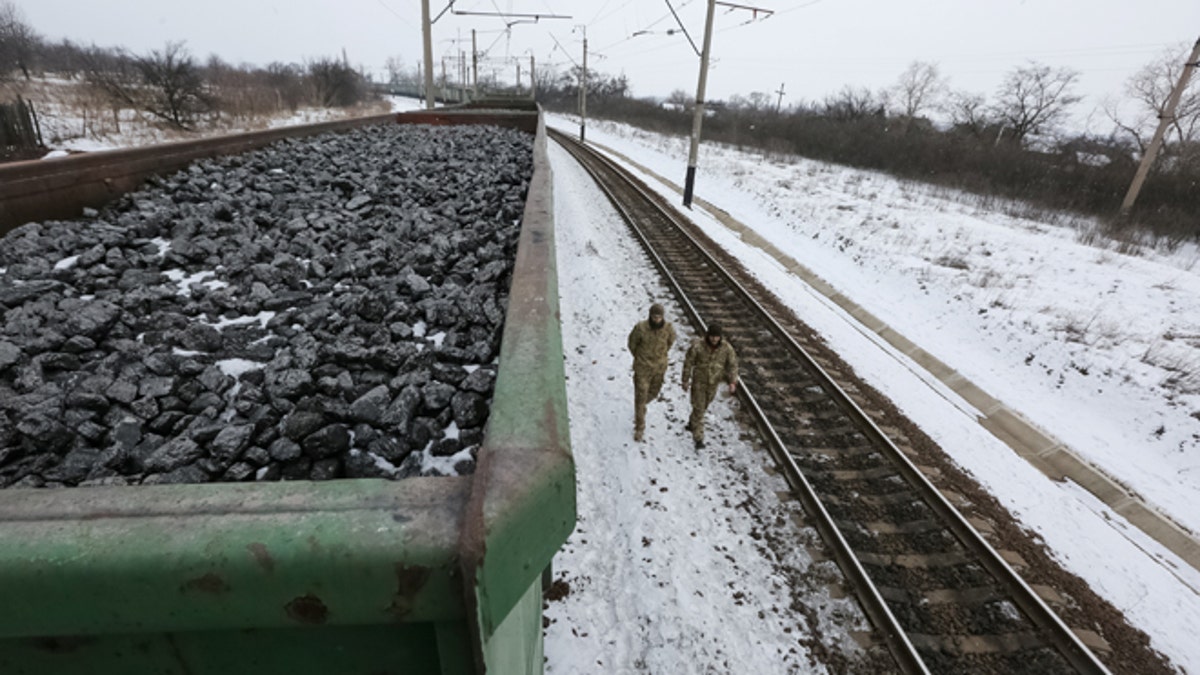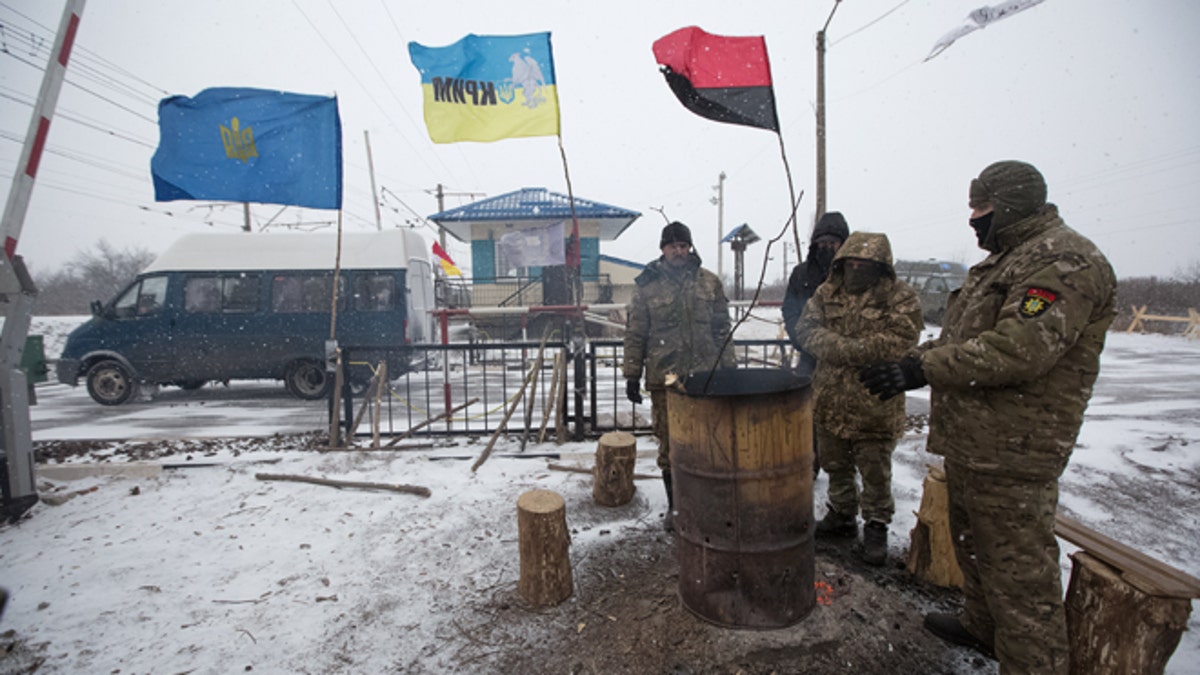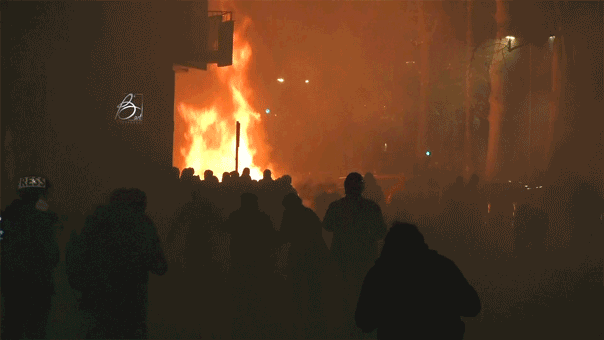
Activists walk along carriages loaded with coal from the occupied territories which they blocked at Kryvyi Torets station in the village of Shcherbivka in Donetsk region, Ukraine, February 14, 2017. (Reuters)
It has been almost a month since Ukrainian nationalists began preventing coal shipments from the breakaway “republics” in the eastern part of the country by choking off all railroad traffic in what they are calling a blockade.
The so-called blockaders are a relatively new movement in the turbulent eastern European nation, but have quickly become a flashpoint in the ongoing conflict in eastern Ukraine between government forces and separatist rebels. The clashes have killed more than 9,800 people since April 2014.
The main goal of the blockade, which is strongly supported by Ukrainian nationalist circles, is to break all ties with Ukraine’s industrial base and force the financing of the Moscow-backed breakaway regions and their 3 million or so inhabitants onto an already weakened Russian economy.
"We are proud that the blockade has hit the pockets of the occupiers. We should call it a war and stop ... all trade with the occupied territories," parliament member Semen Semenchenko, a blockade advocate, told The Associated Press.
The blockade has seriously disrupted trade on both sides, cutting off much of the coal shipments to government-controlled territory and impeding shipments from the mills and factories that are the east's economic backbone. It has also led a mine and a steel plant in the separatist region to shut down. Economists speculate the move will greatly disturb the half a million jobs and $3.5 billion in revenue from steel exports in the east that depend on the coal trains.
The area around the blockade has also been the scene of bloody violence, with battles breaking out between armed activists and those seeking to commandeer the trains.
Ukrainian President Petro Poroshenko's government has spoken out against the blockade, saying it hurts ordinary Ukrainians in the rest of the country by cutting off coal shipments from separatist regions and creating power shortages. However, it has taken no action to break it, fearing to challenge the nationalist groups.
The rebel leader in the Donetsk section of eastern Ukraine, Alexander Zakharchenko, told local media on Wednesday that in retaliation for Kiev's blockade, the rebels have taken over the management of 40 factories and coal mines. They include those owned by tycoon Rinat Akhmetov, who is regarded as Ukraine's richest person and whose foundation has been the largest provider of humanitarian aid to a war-battered population.
His Metinvest holding company announced last week that it had stopped operations at a steel mill and a coal mine because of the blockade. Stopping all of the company's operations could throw 20,000 people out of work, Metinvest said.
Akhmetov's foundation said in a statement that its work in the region was paralyzed after rebels blocked access to Akhmetov's Shakhtar FC arena in Donetsk, which hosted the 2012 European soccer championships and now serves as a warehouse for relief efforts.
The foundation said it has given away more than 11 million food packages to local residents. The separatists do not allow Ukrainian aid in, and in recent months have barred virtually all international organizations from operating there.
Russia has been delivering aid to the rebel-controlled east too, but some of the deliveries have ended up in the fighters' hands. Unlike Akhmetov's food packages, Russian aid is not distributed directly to the people.

Activists warm themselves at a fire in a camp at Kryvyi Torets station as they take part in a rail blockade that has halted coal supplies in the village of Shcherbivka in Donetsk region, Ukraine, February 14, 2017. (Reuters)
Russian Foreign Minister Sergey Lavrov said that because of the blockade, the rebel authorities "hardly had any other choice" than to seize the businesses.
Kremlin spokesman Dmitry Peskov told reporters on Wednesday that Moscow is concerned about a worsening humanitarian situation in the east and pledged that it "will do its best to contribute to “de-escalation" in the area.
The Minsk agreement, a 2015 cease-fire pact that has been consistently violated, envisions the rebel-held Donetsk and Luhansk regions remaining in Ukraine, although with expanded local powers. But a recent surge in fighting, the blockade and Russia's decision last month to recognize passports and other documents issued by the rebels have threatened the goal of reintegrating the regions into Ukraine.
As it seeks to establish warmer ties with Russia, the White House so far has remained quiet in regards to the blockade and President Trump has so far provided no update on his oft-repeated ambition of closer cooperation with Moscow.
It's a goal Trump has stuck to despite allegations by U.S. intelligence agencies that the Kremlin meddled in the presidential election.
The Associated press contributed to this report.








































